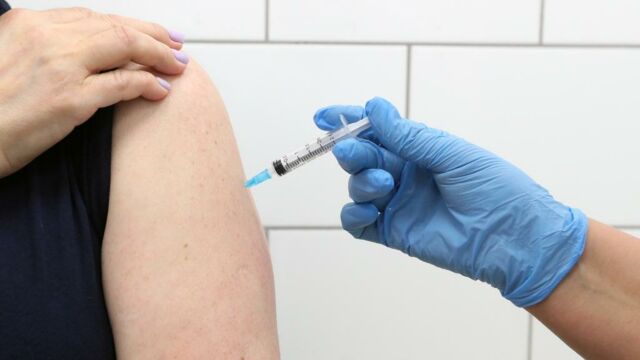Booster shots of the COVID-19 vaccine are unlikely to cause more serious side effects than the original vaccines, two leading experts have claimed–although others say it is too early to tell. A booster shot is an extra dose of a vaccine that boosts the body's immune response. The tetanus vaccine, for example, requires an extra dose 10 years later to maintain immunity.
Discover our latest podcast
A booster for COVID-19 would be either a third dose of the same two-dose vaccine or a tailored dose designed for variants. Moderna, Pfizer and AstraZeneca are all testing both options and results of the trials are expected later this year, including whether an extra dose protects against variants of the coronavirus–particularly the worrying one from South Africa, called B.1.351, which can sometimes evade the immune response.
The original two-dose COVID-19 vaccines made by the three drugmakers typically cause side effects that go away on their own after a few days.
'It won't be any different or worse than the second dose,' Amesh Adalja, an assistant professor at the Center for Health Security at Johns Hopkins University, told Insider. Amesh Adalja said people may experience arm pain or soreness.
Various side effects
Already, early data from Moderna suggest that a third dose boosts the antibody response, and that side effects are generally similar to those of the second dose. The vaccine designed specifically for the variant will use the same capsule, called a lipid nanoparticle, to deliver the vaccine instructions to the body–only the instructions will change.
Kathleen Neuzil, a professor of vaccinology at the University of Maryland, said she expects the nature of the side effects to be similar because the booster vaccines use the same lipid nanoparticle.
The unknown is whether an additional third dose would result in more severe side effects.
Amesh Adalja said he did not expect the immune system to 'overreact' to a third dose of COVID-19. He explained that tetanus boosters do not usually cause worse or different side effects than the initial vaccine.
No one has ever called me about the side effects of tetanus booster shots and we give them all the time.
It is still too early to say
Previously, a participant in the Moderna trial reported experiencing arm pain the day he received the booster shot, as well as low-grade fever, nausea, body aches and fatigue for about 24 hours. Moderna said in a press release on Wednesday that the side effects of the booster shots tested were 'generally comparable' to those seen after a second dose of their vaccine.
About 11% of people who received the variant-specific booster reported Grade 3 side effects severe enough to affect their daily lives, compared with 15% of people who received the third dose of the original vaccine, they said. The most common side effects were fatigue, headache, muscle pain and joint pain.
But few people have actually received a third dose of the COVID-19 vaccine, and we still haven't received data from AstraZeneca or Pfizer. Dr Susan Bailey, president of the American Medical Association and an expert in immunology and allergy, warns:
There are not enough people who have received a third dose to give us an indication of what we can expect.
Professor Gregory Poland, a consultant in the Department of Molecular Pharmacology and Experimental Therapeutics at the Mayo Clinic, said there was a demonstrable increase in the immune response to the second dose of the COVID-19 vaccines from Moderna, Pfizer and AstraZeneca. Poland says:
Until we have complete data, we can't know.
Recalls every 12 months
It is not yet clear when the COVID-19 boosters will be needed, or whether they will be necessary at all. Studies have indicated that protection from two doses of vaccine probably lasts at least 6 months, but beyond that it is unclear.
Stéphane Bancel, CEO of Moderna, and Albert Bourla, CEO of Pfizer, both suggested that a booster shot would probably be needed within 12 months of vaccination to maintain protection.















